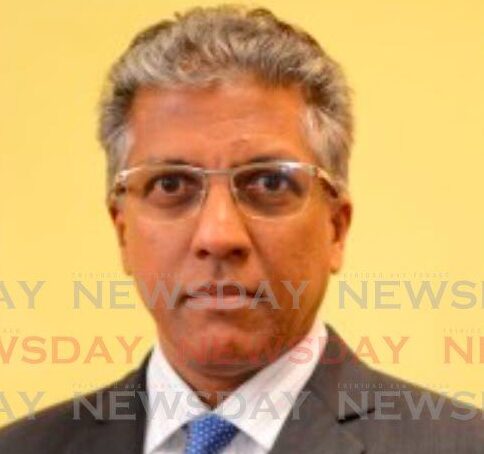AG: JPs can no longer sign warrants for indictable offences

ATTORNEY General Reginald Armour, SC, says justices of the peace can no longer sign warrants.
He made this comment on Tuesday as he responded to concerns raised by the (JOPATT) about the impact of the Indictable Proceedings Act on their roles and functions.
In a statement on December 7, the Office of the Attorney General and Ministry of Legal Affairs (AGLA) said the Administration of Justice (Indictable Proceedings) Act, 2011 (“AJIPA”) and its six amending acts would be proclaimed on December 12.
The AGLA said the proclamation of the act, which abolishes preliminary enquiries, "will create sweeping changes to the functioning of the courts and the dispensation of justice, reduce case backlog, ease the burden on witnesses and significantly eliminate the wastage of time and resources in the disposal of indictable matters."
The AGLA said citizens could now anticipate a thoroughly reformed, highly streamlined, and entirely operational pre-trial system that has been under development for several decades.
In a statement last week, the judiciary said the amended law transformed the process for indictable matters, such as murder, kidnapping, money laundering and some forms of sexual abuse, by removing preliminary enquiries and allowing cases to go straight to the High Court.
The act also introduces initial hearings, which will be conducted by a master of the High Court when the case is filed or the next working day.
At that time, JOPATT president Colin Baggan said the wording of the law caused some members to believe justices of the peace were no longer permitted to perform some functions.
Section 1c of the act allows a master of the High Court to issue a warrant under certain circumstances.
But section 1d states, "The power to issue a warrant by this section does not preclude the exercise of such powers under any written law."
Baggan added that until the association received clarification on the matter, its members would perform all of their functions except for signing warrants and granting bail.
On Monday, Baggan said that the decision had been reversed.
"I will be willing to continue my usual duties until otherwise (told) by the AG's office."
Baggan said he would be advising the association's members to do the same.
In a statement on Tuesday, Armour said he needed to respond to last week's position taken by JOPATT.
"Stakeholders are reminded that the purpose of AJIPA is the removal of preliminary enquiries in the lower courts."
Consequently, Armour said, the jurisdiction of magistrates and, by extension, justices of the peace as it relates to the initiation of indictable matters has been removed.
"Indictable matters are no longer within the function and jurisdiction of the summary courts, save and except for indictable matters that may be heard summarily."
He said the jurisdiction of justices of the peace is similar to that of a magistrate, "except for the adjudication of cases, unless directly empowered to do so by the Chief Justice, which is not done in practice."
Previously, Armour said, magistrates and justices of the peace had the power to grant search warrants and arrest warrants for indictable offences.
"AJIPA now provides for improved judicial oversight in the granting of such warrants by Masters or Supreme Court Registrars."
He said the reduction of responsibilities for justices of the peace in indictable matters "does not constitute a loss to justices of the peace as they are not entitled to charge for their services beyond out-of-pocket expenses."
Armour added that justices of the peace continue to play roles and functions in summary matters.
"In such instances where a judge, master or magistrate grants bail, justices of the peace can take the recognizance for that bail in keeping with the order of the judicial officer."
He said the Law Reform Commission has developed a “Justices of the Peace Bill” which prescribes the appointment, functions, duties and liabilities, and code of conduct for justices of the peace.
The commission has actively sought JOPATT's input in relation to this bill and further consultation is expected.
Armour said, "This collaborative effort underscores the commitment of ensuring that the voices of key stakeholders are heard in the legislative process."
He added that should JOPATT need any further clarification about the AJIPA, the AGLA "is available to address same."


Comments
"AG: JPs can no longer sign warrants for indictable offences"